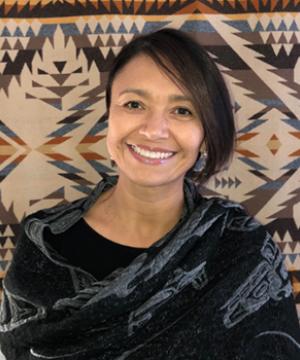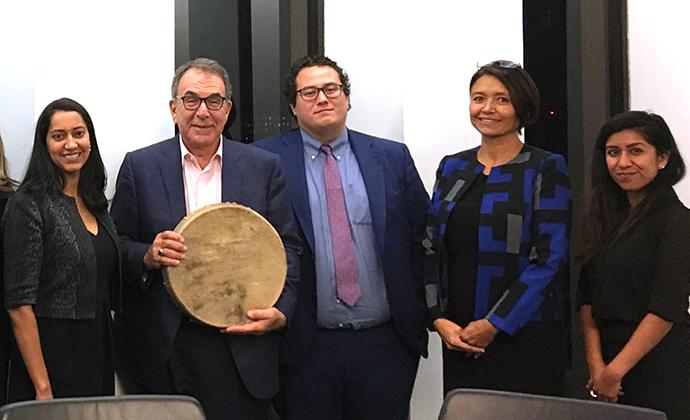Up Close With Brenda Toineeta Pipestem ’99: A Leader in Tribal Law
Brenda Toineeta Pipestem, an associate justice on the Eastern Band of Cherokee Indians Supreme Court, discusses the urgent priorities in tribal law.
Brenda Toineeta Pipestem ’99 is an associate justice on the Eastern Band of Cherokee Indians Supreme Court. She also serves as an associate justice on the Mississippi Band of Choctaw Indians Supreme Court and earlier in her career spent seven years working in the federal government in Indian affairs. In recognition of Native American Heritage month, CLS asked Justice Pipestem to discuss her work in tribal law. Justice Pipestem also shared memories of Columbia Law School and offered advice for students interested in the field of tribal law.
Q: What do you think are the most pressing issues in Native American law?
Justice Brenda Toineeta Pipestem: Two important issues facing Tribal Nations are (1) to have inherent tribal criminal jurisdiction over all persons, Indian and non-Indian, recognized so that tribes can fully enforce tribal and federal criminal laws within their jurisdictional boundaries; and (2) the preservation of the Indian Child Welfare Act, a 40-year-old statute designed to protect Native children, that a federal district court in Texas recently ruled is unconstitutional. In the interim, reauthorization and expansion of the Violence Against Women Act that acknowledges Tribal criminal jurisdiction over non-Indians who commit domestic and dating violence crimes on tribal lands is of utmost importance for tribes to continue providing protection to tribal citizens. Without full jurisdiction over their lands, Tribal Nations are unable to protect their citizens and property from the criminal acts of non-Indians.
While at Columbia Law, you were a Harlan Fiske Stone Scholar and received the Bernstein Litowitz Berger & Grossman LLP Fellowship for Public Interest Law, which provides loan repayment assistance. What did this support mean to you?
The fellowship meant that I had the financial space to breathe as I pursued a career in law related to service to Tribal communities. I am grateful for the leadership and support of the partners who continue to fund this fellowship for CLS graduates.
At a recent event bringing together past recipients of the BLB&G fellowship, you presented a Native American drum to Max Berger ’71, one of the partners at the supporting firm. Can you explain what this gift symbolized?
My brother-in-law Rock Pipestem, Otoe-Missouria and Osage, is a renowned buffalo-hide drum maker. The authenticity of this drum represents my esteem and gratitude for the vision and commitment of Mr. Berger and his partners to fund LRAP fellowships at Columbia Law. Their vision creates parity in ability to repay law school debt among public interest law fellows and private sector attorneys who are just beginning their careers. I also wanted to specifically honor Mr. Berger for recognizing the work that needs to be done in the field of American Indian law and his willingness to expand the scope of the BLB&G fellowship to include government work with our Tribal Nations.
What advice would you give Columbia Law students interested in pursuing Native American law?
American Indian law covers a cross-section of all areas of law interwoven with additional layers of specific tribal law and federal Indian law. Take a Federal Indian Law course, find a specific area of the law that interests you, learn everything you can, and then ask questions in class about the inter-relatedness of any area of law to working with Tribes.
The legal foundation that Columbia provides students is exceptional. Once you are in the field, you will have the tools to learn what you need to know about Tribal-specific laws and the ever-changing and developing field of federal Indian law. This area of work will never be stagnant, and there will always be more work to do than time.
# # #
Published on November 28, 2018

